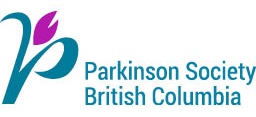Talking About Abuse
Abuse is a difficult topic to discuss and seeking help is commendable, as abuse so often stays a secret. Abuse may take many forms, whether it includes neglect, or is physical, psychological, financial, sexual, or medical. People of all walks of life may be vulnerable to mistreatment from others or be abusers themselves, regardless of gender, age, or ability.
Due to both the motor and non-motor symptoms of Parkinson’s (PD), some people with the disease may be even more vulnerable. While each person with PD is different in terms of symptoms and disease progression, some may find themselves more dependent upon others and increasingly isolated. However, carepartners can also be at risk of abuse in similar reasons. Often, both the person with PD and the carepartner have a very small support network, within which relationships can become strained. Carepartners can be vulnerable to abuse both from people with PD and others.
How to Help
Unfortunately, abuse is much more common than we think. If you believe that a person is being abused or neglected or is seriously neglecting themselves, and they cannot get help on their own, the strategies below may be helpful for consideration.
In an emergency…
If the situation is an emergency, and the person’s safety or life is at risk, call 9-1-1 or the police emergency number for your community.
If it is not an emergency…
If you feel comfortable, talk to the person in private. Ask if they need assistance, and if there is someone you can contact for help on their behalf. If this is not possible, contact any of the following:
BC Public Guardian and Trustee | 1-877-511-4111
Ask about their role in helping vulnerable adults get support for possible abuse or neglect.
Canadian Network for the Prevention of Elder Abuse | www.cnpea.ca
This organizations connects people and organizations, fosters the exchange of reliable information, and advances program and policy development.
VictimLINK | 1-800-563-0808
This is a free, 24/7 support and referral service hotline.
BC Centre for Elder Advocacy and Support | 1-866-437-1940 This organization can connect you with further support services.
This can be challenging territory to navigate. The person who brings issues of abuse to light can often become a target themselves. If you become involved, be prepared, and create a self-care plan. Legal options for intervening in a possible abuse situation are limited if a person is a mentally capable adult and understands the decisions they are making.
However, as a concerned friend or family member, you may truly be able to make a difference simply by showing that you care. In fact, sometimes these situations prompt people with PD and carepartners/friends to create a formal network of support, made up of family and/or friends. They can meet once a month, or as needed (e.g. to make meals, socialize, or coordinate and plan care). It is best to set up a support network before crisis hits. Abuse sometimes takes place when people’s coping resources are completely depleted.
Last updated: January 3, 2024
